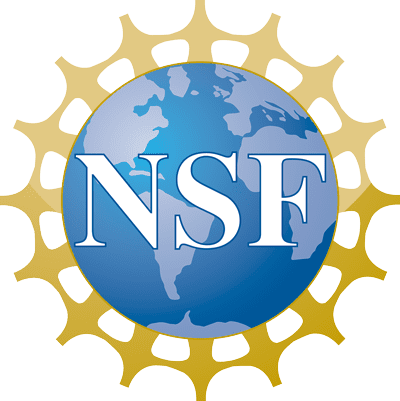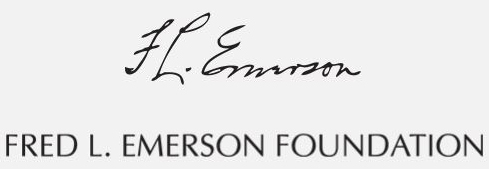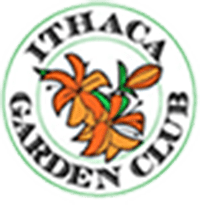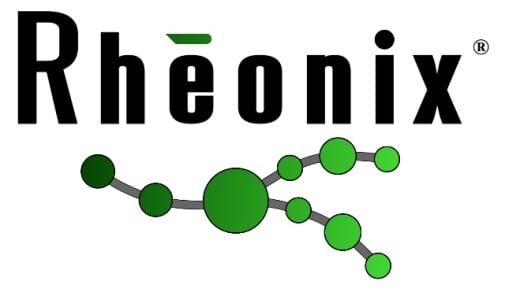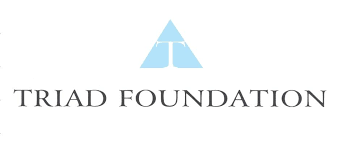2024 Undergraduate Research Applications are now closed.
We appreciate your interest in our program. Our 2025 program application will open in Fall 2024.
Boyce Thompson Institute hosts two Research Experiences for Undergraduates (REU) programs.

The USDA and NSF-funded Plant Genome Research Experiences for Undergraduates encompasses a wide variety of plant science research, including bioinformatics. This program involves labs and faculty members at both the Boyce Thompson Institute and Cornell University
Click here for more information on the Plant Genome and Bioinformatics REU programs.

The NSF-funded Programmable Plant Systems Research Experiences for Undergraduates is funded through CROPPS, the Center for Research on Programmable Plant Systems, and involves trans-disciplinary research that connects engineering and plant science. This program involves labs and faculty members at both the Boyce Thompson Institute and Cornell University, as well as at the University of Illinois, Urbana-Champain, IL campus.
Click here for more information on the Programmable Plant Systems REU programs.
Each program has a separate application, but you can easily apply to both the Plant Genome REU and Programmable Plant Systems REU through NSF’s ETAP portal!
Scroll down for more information and to find the application link to both programs!
Please note: We have extended our deadline from January 31st until February 6th!
Note: All applicants for both REU programs will be required to submit an essay, unofficial transcripts, a resume, and 2 letters of recommendation. To be eligible for our undergraduate programs, students must be US citizens or permanent residents, over the age of 18 by June 2, 2024. Students should also be currently enrolled in a degree-granting program and not have graduated with a bachelors degree by the start of the program, or must not have earned a bachelors degree by the start of the program and are currently enrolled or in the process of transferring to a degree-granting program.

Application Tips -- Please read before submitting your application to our undergraduate research program(s)
Our program uses an application system (ETAP) created by the National Science Foundation for all Research Experience for Undergraduate (REU) programs. This new portal will enable you to apply to our program and other REU programs across the country through a common application.
Please review the following tips on how to create an application that stands out! At the bottom, you will find further instructions with a link to apply to our programs.
Do you have more questions or need more help? Please scroll down for more in-depth information on how to apply. Reach out to us directly at internships@btiscience.org with any questions regarding our program. Reach out to NSF ETAP at etaphelp@nsf.gov or (800) 673-6188 with questions regarding using ETAP or submitting an application.
![]() Ensure your application addresses why you are interested in our REU program and how you would benefit from this opportunity. Our program is geared towards those excited by plant science research and the types of projects available. Regardless of your major (biology, engineering, computer science, etc.), we hope to discern your interest in plant science research within your application materials.
Ensure your application addresses why you are interested in our REU program and how you would benefit from this opportunity. Our program is geared towards those excited by plant science research and the types of projects available. Regardless of your major (biology, engineering, computer science, etc.), we hope to discern your interest in plant science research within your application materials.
![]() Don’t use a generic personal statement. Our panel of reviewers are interested in hearing your story, including why you selected our program and how this REU will help you meet your future goals. You should feel free to include your prior experience and skills you have developed as well as those you plan to grow.
Don’t use a generic personal statement. Our panel of reviewers are interested in hearing your story, including why you selected our program and how this REU will help you meet your future goals. You should feel free to include your prior experience and skills you have developed as well as those you plan to grow.
![]() Have two recommendation letters that speak to specific skills and interests you have that would make you successful in a research experience. For an application to be eligible for review, we must have two recommendation letters by the deadline. It is your responsibility to share our application due date with your recommender and consistently follow up with them to complete it. We will be unable to see any incomplete applications and follow up with any recommenders. You can send reminders to your recommenders to complete the form through ETAP. If needed, you may send your recommender the following link with more information about our program and tips on what to include in a recommendation letter: https://btiscience.org/education-outreach/research-internships/recommend-a-student/
Have two recommendation letters that speak to specific skills and interests you have that would make you successful in a research experience. For an application to be eligible for review, we must have two recommendation letters by the deadline. It is your responsibility to share our application due date with your recommender and consistently follow up with them to complete it. We will be unable to see any incomplete applications and follow up with any recommenders. You can send reminders to your recommenders to complete the form through ETAP. If needed, you may send your recommender the following link with more information about our program and tips on what to include in a recommendation letter: https://btiscience.org/education-outreach/research-internships/recommend-a-student/
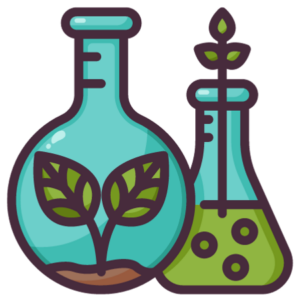 Take time to select the lab or projects you are interested in. Your application will ask for a short description of the types of projects you are most interested in working with this summer, or your general research interests as it relates to this program. Take some time to review the types of projects typically available to REU students each summer: https://btiscience.org/education-outreach/research-internships/projects-and-faculty/
Take time to select the lab or projects you are interested in. Your application will ask for a short description of the types of projects you are most interested in working with this summer, or your general research interests as it relates to this program. Take some time to review the types of projects typically available to REU students each summer: https://btiscience.org/education-outreach/research-internships/projects-and-faculty/
![]() Need help submitting and creating your application on ETAP? Please reach out to ETAP directly at etaphelp@nsf.gov or (800) 673-6188. Reach out to us at internships@btiscience.org with any questions related to the program.
Need help submitting and creating your application on ETAP? Please reach out to ETAP directly at etaphelp@nsf.gov or (800) 673-6188. Reach out to us at internships@btiscience.org with any questions related to the program.
![]() Mark your calendars for our updated application deadline, February 6, 2024. We won’t be able to send you reminder emails to submit your application, so please make a note of the final deadline to apply!
Mark your calendars for our updated application deadline, February 6, 2024. We won’t be able to send you reminder emails to submit your application, so please make a note of the final deadline to apply!

ETAP Undergraduate Application Instructions
1st – Create your account and complete your registration
Create your account with ETAP
You will need to first create an account and log in to the application system, ETAP, the National Science Foundation’s REU application site. You can create your account at etap.nsf.gov.
You may start inputting your registration and personal information now before you apply to our program. This information will automatically be included in your application to any REU program you apply to through ETAP.
Request Letters of Recommendation early in the process.
You should start as early as possible to get letters of recommendation. You need two letters of recommendation to have a complete application. We will not be able to review applications that do not have two letters of recommendation. NSF’s ETAP application software allows you to invite recommenders at any time.
The recommendations are a valuable part of your application to our program. We encourage you to invite your recommenders to share specific information on how you would be successful in an undergraduate research opportunity.
Make a habit of checking your application and the status of all requested recommendation letters. Follow up consistently with your recommenders to ensure that they have submitted their recommendation in time for the February 6, 2024 due date.
2nd – Assemble Your Application Materials
Please have the following items ready before you begin your application:
- Academic Transcripts: Unofficial transcripts are preferred, but both official and unofficial are accepted. Upload a scanned version of your transcripts within “Application Materials” on the ETAP site.
- Personal Statement: In 5000 characters or less, describe your interest in our research experience, what you hope to gain, and how the opportunity fits into your future academic and career plans. If you have any relevant research experience, please remember to include that as well. Keep in mind: ETAP allows you to create one personal statement that you can edit within each application. We strongly encourage you to personalize your statement within our application to reflect your interest in our program.
- Resume: If this is your first time creating a resume, we encourage you to search for examples of undergraduate resumes and follow a simple template (they can be found on Word or online). The easier the resume is to review, the more likely reviewers will catch important elements of your experience that couldn’t be included in the resume (e.g. length of time in a research lab or computational skills). Current work experience outside of research labs should be highlighted as well as volunteer services. Upload your resume under “Application Materials.”
3rd – Selecting Participating Faculty and Research Projects
Before completing your application, visit the Faculty and Projects page. You should become familiar with faculty and research projects that could be available for summer research experiences. This list is based on past projects, and the final list of faculty and projects for 2024 could be different depending on summer schedules for faculty and labs, and availability of research projects. You should review the faculty list to determine which type of research you are most interested in (i.e. bioinformatics, ecology, etc.), and share those broader research interests on your application. Please take the time to decide which types of research you are interested in, and carefully look through faculty projects to find labs that align with those interests. We cannot guarantee that you will be placed in your top choices, but we will do our best to match you to a lab based on your interests and any selected faculty members and projects.
4th – Complete the Application Form
Please submit your application once you have finalized your application materials, and have ensured that all the required application materials are attached to your application. You will not be able to update your application once it is submitted!
If you need to log back in to complete your application please visit: www.etap.nsf.gov
The deadline to submit your application is no later than midnight on February 6, 2024. We are unable to accept late applications or late recommendation letters. Please note that we have extended our deadlines from January 31st until February 6th!
Please reach out to etaphelp@nsf.gov with any issues or questions related to submitting your application.
Internships are funded by the National Science Foundation, Research Experiences for Undergraduates Award #1358843, individual faculty grants, and the generosity of donors including the Emerson Foundation , Ithaca Garden Club, John Ben Snow, the Legacy Foundation of Tompkins County, Rheonix, Triad Foundation Inc, Yunis Realty , and many individual donors.

